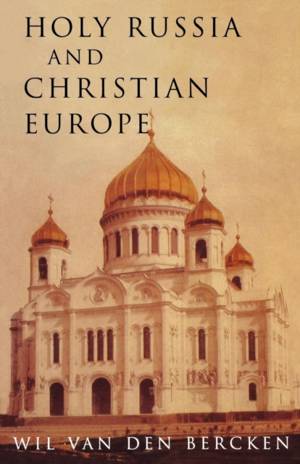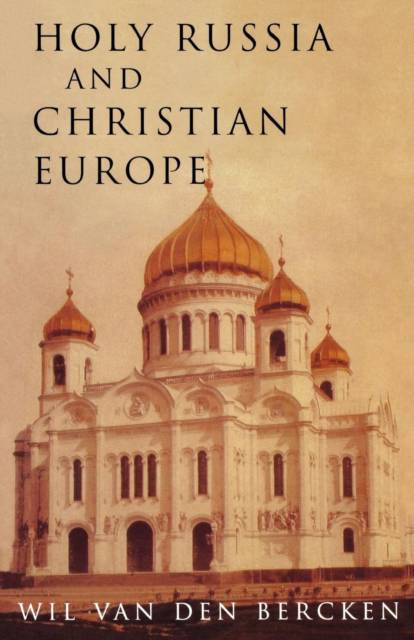
- Retrait gratuit dans votre magasin Club
- 7.000.000 titres dans notre catalogue
- Payer en toute sécurité
- Toujours un magasin près de chez vous
- Retrait gratuit dans votre magasin Club
- 7.000.0000 titres dans notre catalogue
- Payer en toute sécurité
- Toujours un magasin près de chez vous
Holy Russia and Christian Europe
East and West in the Religious Ideology of Russia
Wil Van Den Bercken, William Bercken
Livre broché | Anglais
49,95 €
+ 99 points
Description
In 1997, the Cathedral of Christ the Redeemer in Moscow was solemnly brought into use in the presence of Patriarch Aleksij and President Boris Yeltsin. It is a spectacular expression of the national religious revival of Russia and the expression in stone of a myth cherished by Russians down their history, that Moscow is the 'third Rome' and that Christianity and civilization have moved eastwards. At the same time, Russia has always formed part of the European cultural sphere. The tensions between the 'myth of the East' and Russia as European form a fascinating story which is investigated here. The opening chapters investigate the Russian view of their own conversion on the basis of two documents about the introduction of Christianity into Russia: the oldest Russian chronicle, The Story of the Past Years, and the eleventh-century treatise by Ilarion of Kiev, On the Law and Grace. These are then compared with 'national' accounts of the conversion of Western and Eastern European countries, with numerous quotations from mediaeval European chronicles. The book then goes on to describe the origin and development of the Russian religious-ideological myth from the fourteenth century to its secular transformation in the eighteenth century, and the great philosophical controversy over it in the nineteenth century. At that time the debate between Slavophiles and those with leanings towards the left brought home, as never before, that Russia was already part of Europe. The final chapter brings us to the present day. Wil van den Bercken lectures in Russian history in the University of Utrecht.
Spécifications
Parties prenantes
- Auteur(s) :
- Traducteur(s):
- Editeur:
Contenu
- Nombre de pages :
- 240
- Langue:
- Anglais
Caractéristiques
- EAN:
- 9780334027829
- Date de parution :
- 01-12-99
- Format:
- Livre broché
- Format numérique:
- Trade paperback (VS)
- Dimensions :
- 140 mm x 216 mm
- Poids :
- 303 g

Les avis
Nous publions uniquement les avis qui respectent les conditions requises. Consultez nos conditions pour les avis.






